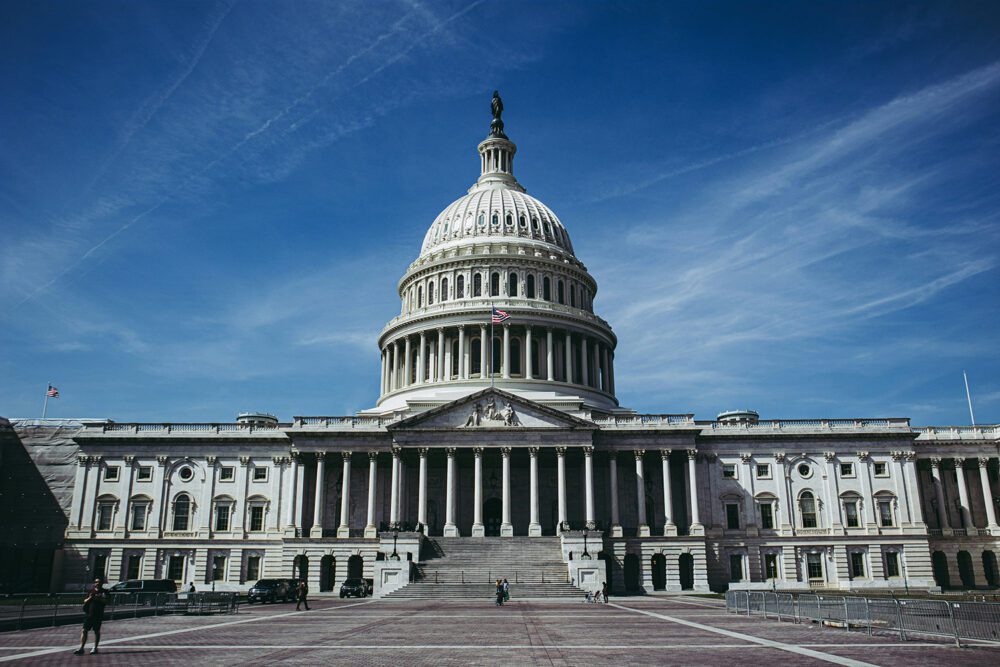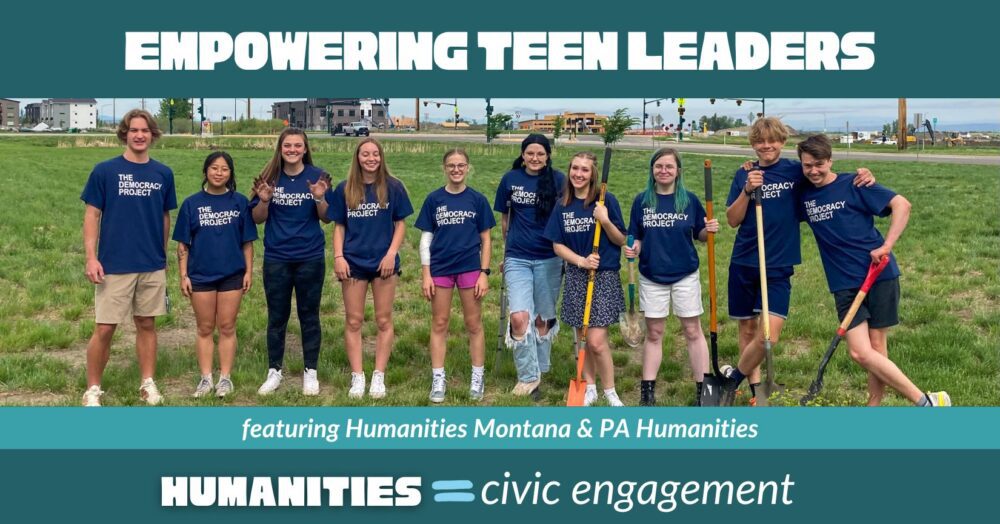Our podcast episode, “Healing through Prison Programs” profiled two humanities programs serving people currently incarcerated and returning citizens. In this article, we are sharing these stories and highlighting even more humanities council programs and council grantees improving the lives and futures of people affected by incarceration.
States featured in this article: Mississippi | Hawaii | Virginia | New Jersey | Missouri | Wisconsin | Colorado
Mississippi Humanities Council runs college courses and book clubs for men and women in 12 prisons around the state
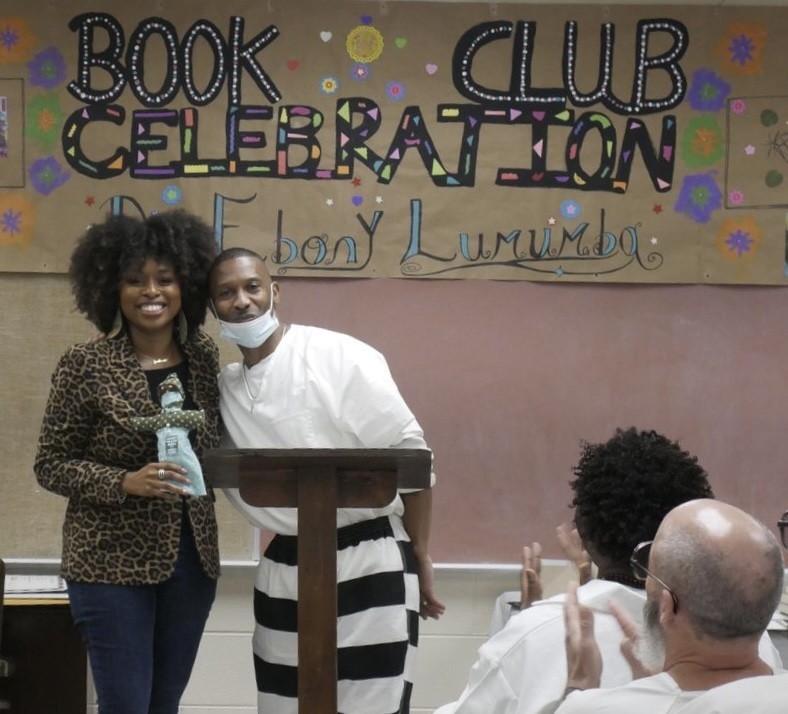
With support from the Mellon Foundation and in partnership with Mississippi community and senior colleges, the Mississippi Humanities Council’s Mississippi Higher Education in Prison Program sponsors liberal arts courses at no cost to incarcerated students. The Council works with the Mississippi Community College Board (MCCB) and the Mississippi Institutions of Higher Learning (IHL) to support courses that fulfill basic degree requirements, prepare them for the workplace, and help students recognize and cultivate the humanity of themselves and others. MHC also provides funds for student academic support to help prison education programs meet the federal requirements to become Prison Education Programs where students can access Pell Grants.
Realizing the far-reaching benefits of these courses, the Mississippi Humanities Council convened state leaders who could meaningfully impact this work. Joining with Woodward Hines Education Foundation, MCCB, and IHL, and with funding from the Laughing Gull Foundation, MHC played a vital role in creating the Mississippi Consortium for Higher Education in Prison (MCHEP). With representatives from community colleges, universities, reentry organizations, and justice-impacted individuals, MCHEP is creating partnerships, supporting students, and providing data and evaluations to expand and promote quality postsecondary education opportunities for students in prison.
The Mississippi Humanities Council offers other opportunities for incarcerated Mississippians to engage in the humanities. Prison book clubs involve area scholars facilitating discussions of fiction, poetry, and nonfiction. Spending four sessions on each book, Members explore their humanity in the context of our larger culture. Additional MHC efforts in the prisons include speakers, traveling museum exhibits, films, and supporting the publication of prison writings.
Learn more about the Mississippi Humanities Council.
The Hawaiʻi Council for the Humanities empowered incarcerated people to share their stories and connect with others through facilitated conversations
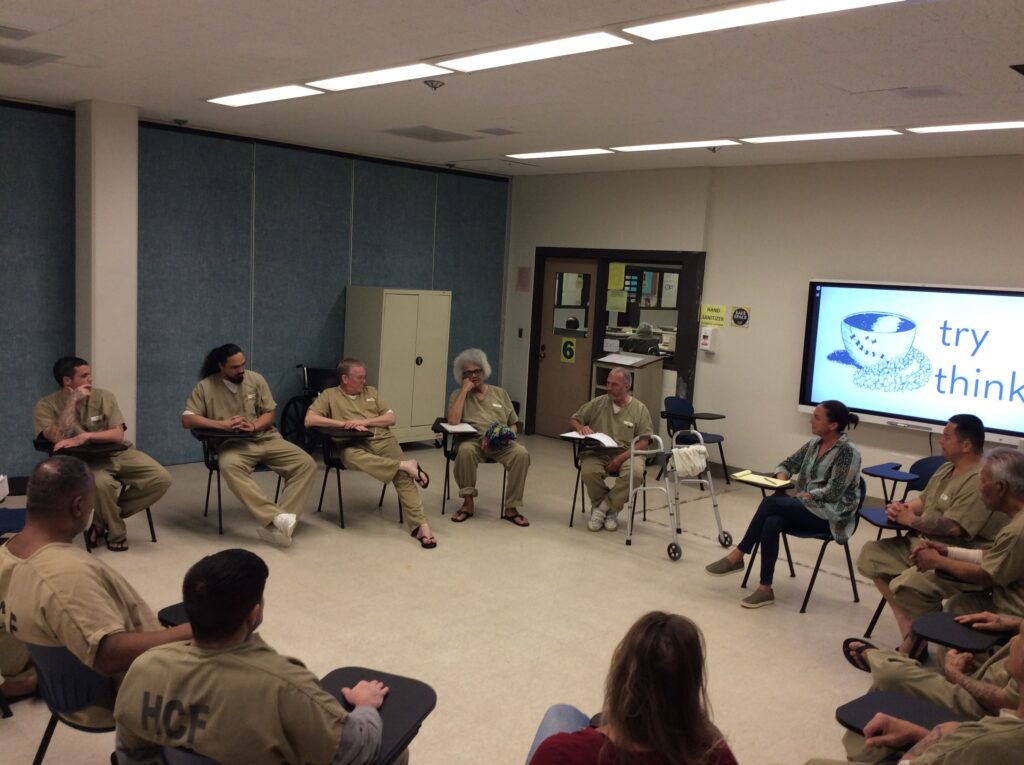
For 20 years, the Hawaiʻi Council for the Humanities ran Try Think, a conversation-based program that provided space for incarcerated people to feel safe to share their opinions and perspectives and share their stories and hopes for the communities they may be returning to someday.
Sadly, the NEH’s termination of all humanities council operating grants in April 2025 forced Hawaiʻi Council for the Humanities to discontinue this vital program due to lack of resources, though former staff and program facilitators are are exploring ways to continue Try Think as an independent project.
In 2024, 759 attendees and 36 community guests participated in 66 sessions at the three facilities. Hawaiʻi Council for the Humanities says Try Think demonstrated the importance of voice, the desire to feel heard and considered, the need to feel acknowledged as a whole person and as a valuable part of the community.
One participant at the Halawa Correctional Facility said this about their experience in Try Think: “Try Think has given me a safe place to communicate about topics that matter in society. It’s a class that teaches me how to engage with others in a positive manner.”
Learn more about the Hawaiʻi Council for the Humanities.
A community college received a grant from Virginia Humanities to turn incarcerated students’ writing and artwork into original theatrical productions
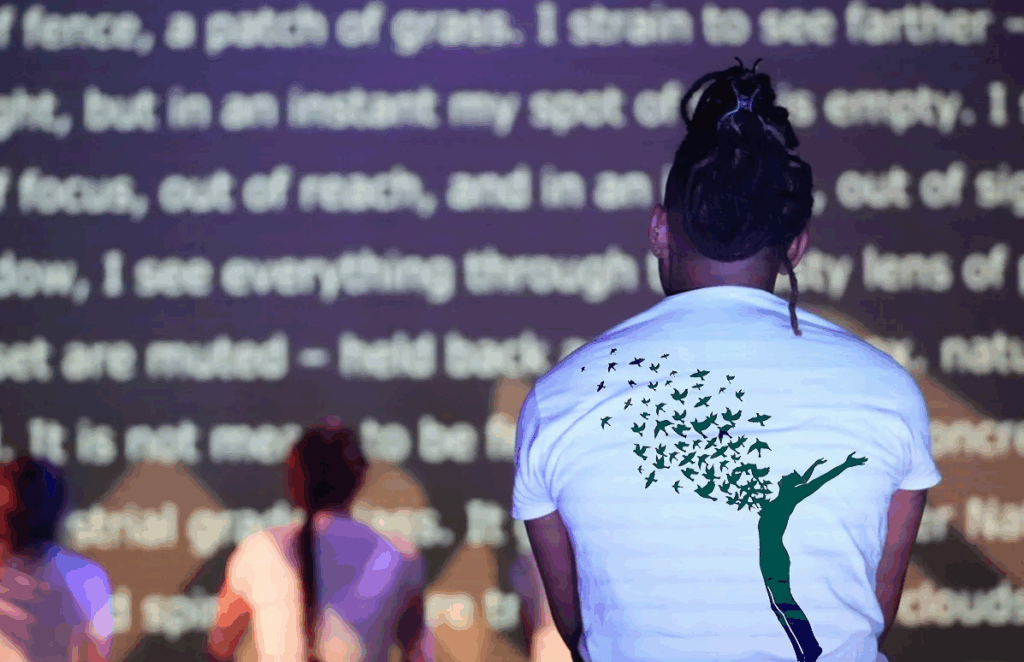
The Piedmont Virginia Community College (PVCC) Prison Creative Arts Project serves incarcerated students in correctional centers in Fluvanna, Buckingham, and Dillwyn. The project collects original writings and artworks from incarcerated students and then has other PVCC students turn those works into new, original theatrical productions.
The project started in 2022 with support from Virginia Humanities and has since served approximately 200 incarcerated students. The program has had a dramatic impact on students, both those whose stories are shared and those who perform them.
This text is excerpted from a longer story about the PVCC Prison Creative Arts Project published on the Virginia Humanities website.
Learn more about Virginia Humanities.
Grants from humanities councils in New York and New Jersey enabled Ritual4Return to develop and run a 14-week theater program that helps returning citizens transition home
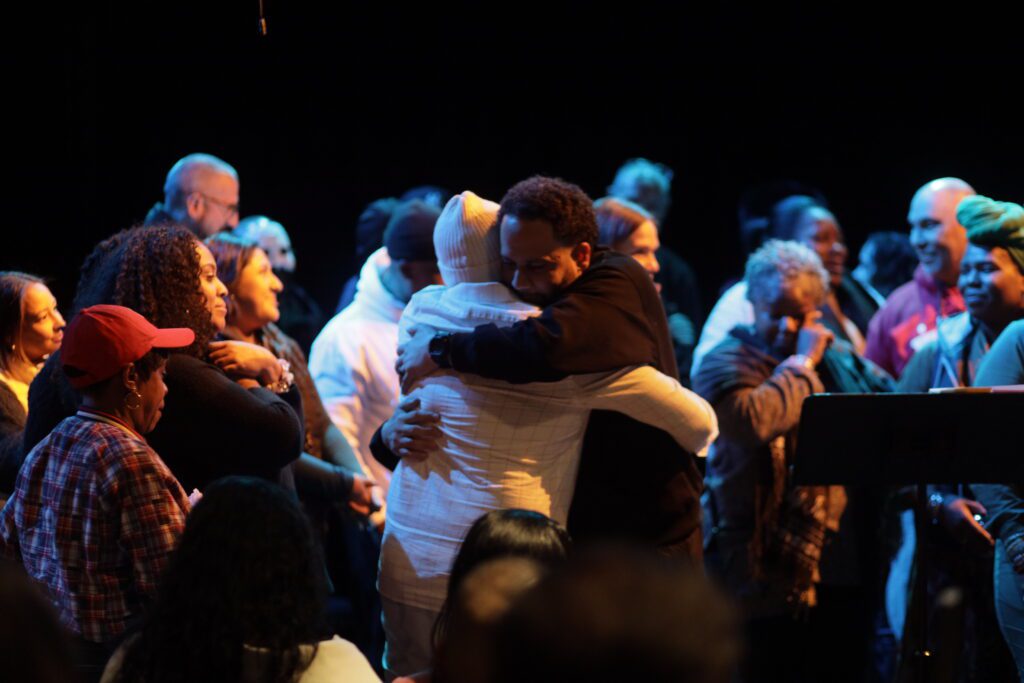
Ritual4Return (R4R) is a 14-week program through which groups of returning citizens undertake a process of creating and performing a homecoming rites of passage. The process helps participants as they transition from incarceration to freedom. It is a demanding journey, pushing people intellectually, physically, emotionally, and spiritually as they define and then cross the thresholds that mark their individual and collective transition from bondage to freedom.
This program is for anyone who has ever been incarcerated for at least a year. It doesn’t matter how long you were in or how long you’ve been out. Ritual4Return is meant for people who feel traumatized by the impact of their incarceration, and/or who feel shame and feelings of stigma about their past. R4R is a healing and transformative tool for anyone who seeks to move on from their experiences of prison and into a new life.
Ritual4Return was first funded by a grant from Humanities New York. When founder Kevin Bott later moved to New Jersey, the project received grants and awards from the New Jersey Council for the Humanities.
Learn more about Ritual4Return.
Learn more about Humanities New York.
Learn more about the New Jersey Council for the Humanities.
Missouri Humanities’ MO Pen program brought literature, poetry, and the power of self-expression into Missouri’s state prisons
MO Pen (short for Missouri Pen) was a creative writing program from Missouri Humanities that brought literature, poetry, and the power of self-expression into Missouri’s state prisons. Sadly, it has been discontinued as of July 2025 due to federal funding cuts.
Through monthly in-person workshops, incarcerated writers worked with experienced facilitators to sharpen their craft, share their stories, and connect with the wider literary world. This program was rooted in the belief that everyone has a voice, and that every voice deserves to be heard. Yet for many, especially those who are incarcerated, opportunities to share that voice are few and far between. Incarcerated individuals often have limited access to meaningful educational or expressive outlets.
MO Pen offered participants a community of writers and readers behind the walls; opportunities for reflection, healing, and creativity; opportunities for reflection, healing, and creativity; a space to develop literary skills and artistic voice, and a connection to the outside world through feedback and publication.
Learn more about Missouri Humanities.
Wisconsin Humanities provided initial funding for a UW-Madison program offering college courses and storytelling workshops to incarcerated students
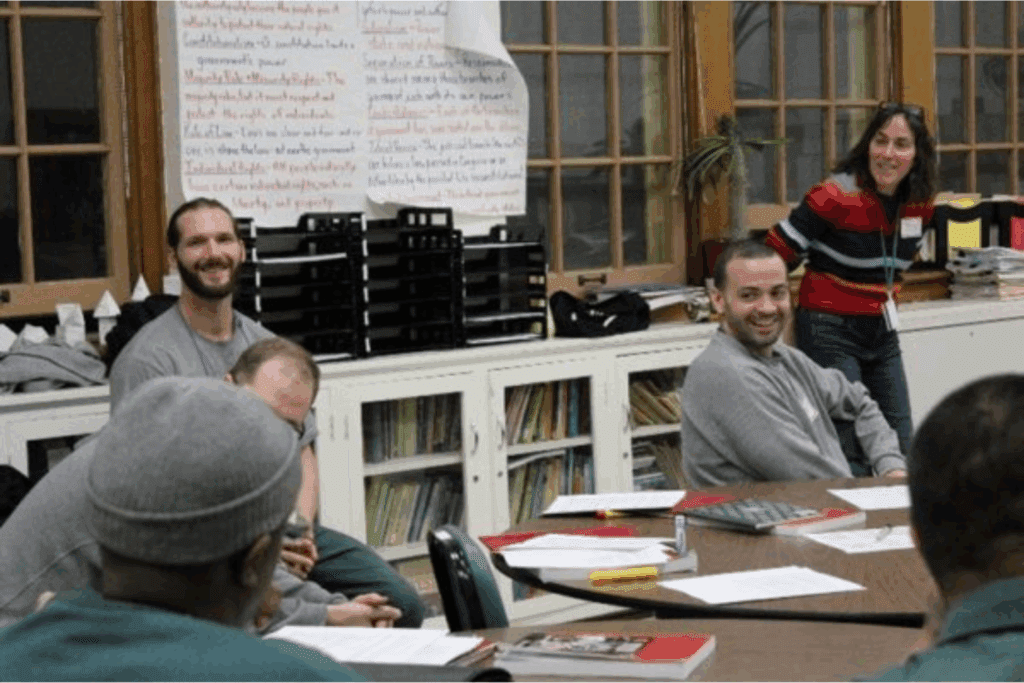
The University of Wisconsin-Madison’s Odyssey Beyond Bars program offers college jumpstart programs to students incarcerated in Wisconsin state prisons. The UW-Madison program is part of the larger University of Wisconsin Odyssey Project, which for 22 years has empowered students living in poverty to overcome obstacles, find their voices and reframe their futures.
Wisconsin Humanities supported the UW-Madison Odyssey Project with initial funding and subsequent grants through their grant program. Former Wisconsin Humanities staff member Jen Rubin also led a team of storytellers who facilitated a three-part storytelling workshop as part of UW-Madison Odyssey Project English classes.
Listen to a Wisconsin Humanities podcast episode about this program.
Learn more about Wisconsin Humanities.
Colorado Humanities’ Motherread/Fatherread program trained facilitators to teach parents in detention centers how to read with their children
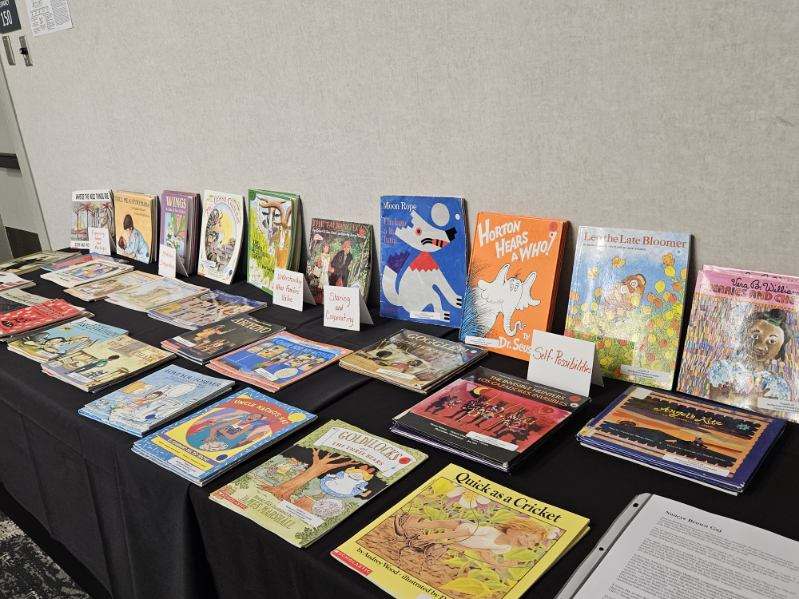
Until cuts to federal funding for humanities councils forced them to end the program in summer 2025, Colorado Humanities ran Motherread/Fatherread. Colorado Humanities used the Motherread/Fatherread curriculum, which was developed by a North Carolina nonprofit called Partners for Children and Families (originally to serve parents in prison). Colorado Humanities used this curriculum to train facilitators and support them in organizing and leading classes for parents of children aged infant to elementary school. These classes taught parents how to promote their children’s literacy while improving their own listening, speaking, reading, and writing skills.
Over the years Colorado Humanities trained more than 1,000 facilitators, who held classes in libraries, preschools, community centers, churches, school districts, immigrant and refugee services facilities, and more. Motherread/Fatherread sessions were also held in men and women’s detention centers.
Providing these classes for mothers and fathers in prison allowed them to have something they could share with their children during visits or once they returned home while also parents’ reading skills. Because Motheread/Fatherread books were chosen for their high quality and early childhood themes, these books helped parents to understand their children better so they could better support their development and emotional needs.

